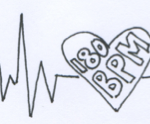 It seems as though at every family gathering there is one aunt/uncle/grandma who always reminds you to take an extra serving of mashed potatoes while you’re young, because in five years it’s going straight to your thighs. So why is this the case and why are all of your adult relatives so bitter about your eating habits? Turns out it has to do with metabolism.
It seems as though at every family gathering there is one aunt/uncle/grandma who always reminds you to take an extra serving of mashed potatoes while you’re young, because in five years it’s going straight to your thighs. So why is this the case and why are all of your adult relatives so bitter about your eating habits? Turns out it has to do with metabolism.
Metabolism is the process of breaking down food into the energy your body needs to maintain itself. The rate of your metabolism depends on the interaction between the number of calories you consume, the number of calories you burn while eating and exercising, and the calories you burn based on your individual genetic makeup.
The truth is, for most people, there will come a day when you can’t eat Easy Mac for every meal without seeing the consequences.
According to WebMD, starting at about age 25, the average person’s metabolism declines between 5% and 10% per decade. This means that a typical person loses between 20% and 40% of their metabolic power over the course of their adult life span.
Fortunately, there is hope. Declining metabolic rates have less to do with genetics than they do with lifestyle. Maintaining healthy eating habits and staying physically active can help to preserve high metabolism.
Research shows that people who preserve their physical activity levels throughout their lifetime can expect to see only a 0.3 percent metabolic decline per decade.
Maximize your metabolic ability with these tips from Shape.com and Men’s Fitness:
Bulk Up
Muscle is made up of metabolically active tissue, which means that it requires energy to be built, used and maintained. Compare this to fat tissue, which requires no energy expenditure at all.
Putting on five to ten pounds of lean muscle can increase the amount of calories your body naturally burns by around 100 calories a day.
Get Intense
 Maximize the calories you burn after exercise by integrating high intensity intervals into your workout. Alternate three minutes of moderate intensity running or biking with 30 seconds of all-out effort. You’ll burn an extra 100 to 200 calories this way, even up to 36 hours after your workout is over. There are a number of different interval workouts available for all fitness levels that can be found online.
Maximize the calories you burn after exercise by integrating high intensity intervals into your workout. Alternate three minutes of moderate intensity running or biking with 30 seconds of all-out effort. You’ll burn an extra 100 to 200 calories this way, even up to 36 hours after your workout is over. There are a number of different interval workouts available for all fitness levels that can be found online.
Don’t Forget the Protein
 Protein requires a lot of energy to break down and digest, so just the act of eating protein can crank up your metabolism. Studies have also shown that people who eat protein at breakfast tend to ingest fewer calories throughout the remainder of the day. So not only are you burning more calories by eating protein, you’re likely to take less in as well. Sugar and carb-laden breakfasts can lead to mid-morning crashes that can throw off your metabolism for the rest of the day and lead to excess snacking. Sticking to a balanced breakfast that includes protein ensures your day is off to the right start.
Protein requires a lot of energy to break down and digest, so just the act of eating protein can crank up your metabolism. Studies have also shown that people who eat protein at breakfast tend to ingest fewer calories throughout the remainder of the day. So not only are you burning more calories by eating protein, you’re likely to take less in as well. Sugar and carb-laden breakfasts can lead to mid-morning crashes that can throw off your metabolism for the rest of the day and lead to excess snacking. Sticking to a balanced breakfast that includes protein ensures your day is off to the right start.
Eat Often
 Each time you eat, you stimulate your metabolism for a short period of time, which means that the more often you eat, the more you’ll increase your metabolism. By eating frequently, you reassure your body that you aren’t going to starve; food will always be available. Skipping breakfast, eating only a sandwich for lunch, and pigging out at dinner, on the other hand, frightens your body into storing fat, just in case your next meal never comes. Research from Georgia State University shows that people who eat every 2 to 3 hours have less body fat and faster metabolisms than those who eat only 2 or 3 meals per day.
Each time you eat, you stimulate your metabolism for a short period of time, which means that the more often you eat, the more you’ll increase your metabolism. By eating frequently, you reassure your body that you aren’t going to starve; food will always be available. Skipping breakfast, eating only a sandwich for lunch, and pigging out at dinner, on the other hand, frightens your body into storing fat, just in case your next meal never comes. Research from Georgia State University shows that people who eat every 2 to 3 hours have less body fat and faster metabolisms than those who eat only 2 or 3 meals per day.
Stay Hydrated
 Water is a key player in the digestive process. Essentially, without water, you cannot efficiently and completely extract all the nutrients taken in from food. There is no magical number as to how much water to drink per day, but there are some guidelines that can be followed. The Mayo Clinic states that the average man drinks around 13 cups of water a day and the average woman drinks 9 cups of water a day. This can fluctuate based on how much a person exercises or the climate a person lives in. A general rule of thumb is to hydrate every time you notice yourself getting thirsty. This will help keep you energized and your metabolism moving.
Water is a key player in the digestive process. Essentially, without water, you cannot efficiently and completely extract all the nutrients taken in from food. There is no magical number as to how much water to drink per day, but there are some guidelines that can be followed. The Mayo Clinic states that the average man drinks around 13 cups of water a day and the average woman drinks 9 cups of water a day. This can fluctuate based on how much a person exercises or the climate a person lives in. A general rule of thumb is to hydrate every time you notice yourself getting thirsty. This will help keep you energized and your metabolism moving.
Catch Some ‘zzz’s
 According to a study at Case Western Reserve University, skimping on sleep can alter your metabolism. Lack of sleep can decrease the number of calories your body burns just resting – performing the basic necessities of life, like pumping blood, breathing and repairing damaged tissues.
According to a study at Case Western Reserve University, skimping on sleep can alter your metabolism. Lack of sleep can decrease the number of calories your body burns just resting – performing the basic necessities of life, like pumping blood, breathing and repairing damaged tissues.
According to WebMD, the rate of calories your body burns at rest represents about 60 percent to 75 percent of your total daily calorie burning, which makes slowing it through lack of sleep a serious roadblock to weight loss.
Keep Moving
 Staying active is the best way to fight off a sluggish metabolism. Simple things like taking the stairs over the elevator or parking further away can help kick start our bodies into naturally burning more calories. This means more weight loss with time at the gym.
Staying active is the best way to fight off a sluggish metabolism. Simple things like taking the stairs over the elevator or parking further away can help kick start our bodies into naturally burning more calories. This means more weight loss with time at the gym.

I will try. Hopefully I succeeded
For me, sleep is the hardest on this list to contend with! I tend to only get between 5-6 hours a day… I know it’s bad but I just try to maximize every day! 😀
I kind of lost motivation for making big changes overnight. Doing it in small steps instead – more fruits and veggies, cooked fish, whole grain bread etc. instead of processed foods. Hope to get back to some work out soon. Thank you 🙂
Awesome post,great tipshttp://centralcoastpoolservice.com.au
The experience of “beauty” often involves an interpretation of some entity as being in balance and harmony with nature, which may lead to feelings of attraction and emotional well-being.